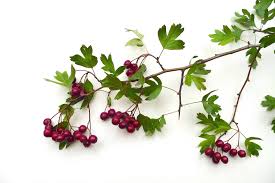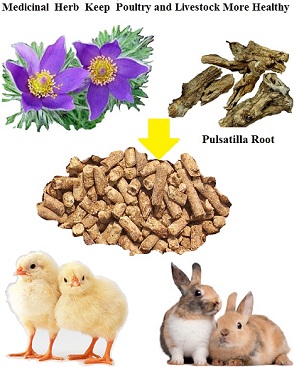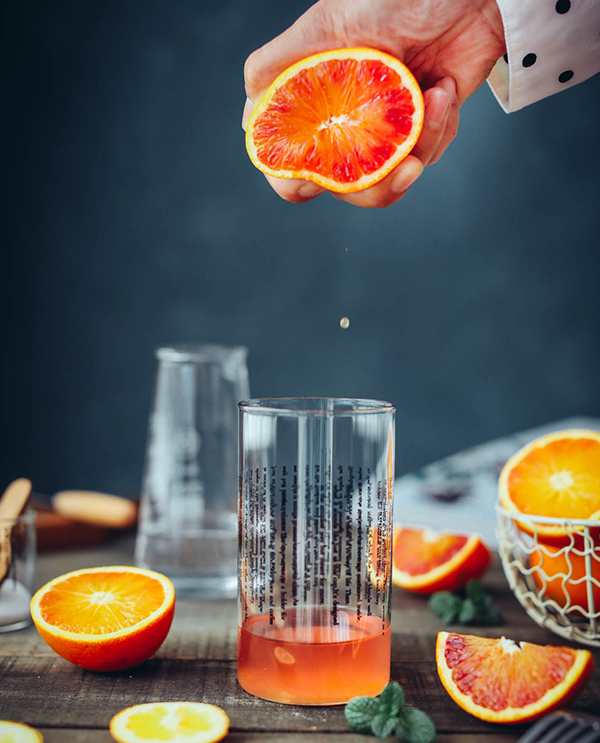- Plant-Based Protein
- Natural Plant Flavours
- Food and Dietary Supplement Ingredients
- Fruit Juice Powder
- Animal Nutrition Ingredients
- Water Soluble Ingredients
- Cosmetic Ingredients
- Unveiling the Therapeutic Potential of Rabdosia Rubescens: A Comprehensive Review
- What are the medicinal properties of Rabdosia Rubescens?
- Nutritional value of Orange Juice Powder compared to fresh orange juice.
- Processing Conditions and Nutritional Value of Orange Juice Powder
- Exploring the Versatility of Herbal Extracts in Food Flavors

What are the health benefits of hawthorn leaf?
Welcome to our blog! Today, we are diving into the world of hawthorn leaf and uncovering its incredible health benefits. Whether you're a fan of herbal remedies or simply curious about natural alternatives, hawthorn leaf is definitely worth exploring.


Plants/Herbal Extract applicated in Feed materials or Additives
Use of herbal feed additive is gaining importance in animal production due to ban on use of certain antibiotics, harmful residual effects and cost effectiveness. A number of feed additives like probiotics, prebiotics, organic acids and plant extracts have been found to have beneficial effects on animal production. Medical herbs properties to improve digestibility, antimicrobial, anti-inflammatory, anti-oxidant and immune-stimulant activity must be exploited in feeding of animals as well as safe food product for human beings.
Use of herbal feed additive is gaining importance in animal production due to ban on use of certain antibiotics, harmful residual effects and cost effectiveness. A number of feed additives like probiotics, prebiotics, organic acids and plant extracts have been found to have beneficial effects on animal production. Medical herbs properties to improve digestibility, antimicrobial, anti-inflammatory, anti-oxidant and immune-stimulant activity must be exploited in feeding of animals as well as safe food product for human beings.




General Information
Plants have evolved a wide range of low molecular weight secondary metabolites. Generally these compounds enable the plants to interact with the environment and may act in a defense system against physiological and environmental stress as well as predators or pathogens. Beside compounds with toxic properties, several of these secondary plant metabolites have been reported to show beneficial effects in food products and also animal metabolism. Most of these active secondary plant metabolites belong to the classes of isoprene derivatives, flavonoides and glucosinolates, and a large number of these compounds have been suggested to act as antibiotics or as antioxidants . Herbs develop their initial activity in the feed of farm animals as flavor and can therefore influence the eating pattern, secretion of digestive fluids and total feed intake. Herbs or phytochemicals can influence selectively the microorganisms by an anti-microbial activity or by a favorable stimulation of the eubiosis of the microflora. The mechanism by which the majority of herbal feed additives exert their antibacterial effect is by acting in the bacterial cell wall structure, denaturing and coagulating proteins. The essential oils alter the permeability of the cytoplasmic membrane to H+ and K+ ions. This change leads to the disruption of essential cellular processes such as electron transport, protein translocation, oxidative phosphorylation and other enzyme-dependent reactions, resulting in the loss of chemiosmotic control and, consequently, in bacterial death. The disruption of the bacterial cytoplasmic membrane is due to the lipophilic nature of essential oils that accumulate in the membranes. Other action may be related to the inhibition of nutrient absorption, enzymatic inhibition, synthesis of DNA, RNA and synthesis of proteins by the bacterial cells. The antioxidant activity of essential oils is related mainly to the presence of phenolic compounds, flavonoids and terpenoids protect food, tissues and cells against the deleterious effect of autoxidation reactions. Herbal feed additive affects improve nutrient utilization and absorption or the stimulation of the immune system. The possible mechanisms of action of herb in the animal for growth promotion include changes in the intestinal microbiota, increased digestibility and nutrient absorption; enhanced nitrogen absorption, improvement of the immune response morphological and histological modifications of the gastrointestinal tract and antioxidant activity. Finally herbs can contribute to the nutrient requirements of the animals and stimulate the endocrine system and intermediate nutrient metabolism. Beneficial effects of herbs or botanicals in farm animals may arise from activation of feed intake and secretion of digestive secretions, immune stimulation, anti-bacterial, coccidiostatic, anthelmintic, antiviral or anti-inflammatory activity and antioxidant properties.
Herbal feed additives or feed materials benefit effects:
1. Herbal feed additives as antimicrobial supplements:
Several studies showed strong antimicrobial activity of certain plant extracts against Gram− and Gram+ bacteria. Plants readily synthesize substances for their defense against insects, herbivores, and microorganisms. Moreover, they may produce secondary antimicrobial metabolites as a part of their normal growth and development or in response to stress. Several researches have studied the antimicrobiol effect of oriental herbs including Allium sativum, Angelica dahurica, Anguisorba officinalls, Artemisia argyi, Coptis chinensis, Dictamnus dasycarpus, Fraxinus rhynchophylla, Geranium thunbergii, Hydrastis canadensis, Phellodenron amurense, Polygonum cuspidatum, Scutellria baicalensis and Sophora flavesens. These herbs contain major flavonoid components, baicalin, baicalein, limonene, cinnamaldehyde, carvacrol or eugenol which exerts antimicrobial effect along with other supportive herbs. These herbs have antibacterial effect against Salmonella spp or E. coli and gram positive bacteria Staphylococcus spp. and Streptococcus spp. Active principles in herbal feed additives changes fatty acid composition which can affect surviving ability of microorganisms by increasing hydrophobicity. This confirms the fact that herbs and spices act as antimicrobial agents by changing the characteristics of cell membranes, and causing ion leakage, thus making microbes less virulent. Plant extracts, known as phytobiotics, have been exploitedfor their antimicrobial, anti-inflammatory, anti-oxidative, and anti-parasitic activities. There is a lot of variations in the composition of phytobiotics due to the biological factors (plant species, growing location, and harvest conditions), manufacturing (extraction/distillation and stabilization) and the storage conditions (light, temperature, oxygen tension, and time).
2. Herbal feed additives as anti-inflammatory:
Extracts of curcuma, red pepper, black pepper, cumin, cloves, nutmeg, cinnamon, mint and ginger showed anti-inflammatory effect. The major active molecules with anti-inflammatory action are phenols, terpenoids and flavonoids. These molecules suppress the metabolism of inflammatory prostaglandins. Phenolic compounds of plants are hydroxylated derivatives of benzoic acid and cinnamic acids and have been reported to possess anti-inflammatory effects. Flavonoids have long been recognized to possess anti-inflammatory, anti-allergic, antiviral and antiproliferative activities. The most known herbs and spices with anti-inflammatory potential are chamomile, marigold, liquorice and anis . Plants of the Labiatae families (like mint) have attracted a great interest. Their antioxidative activities are due to phenolic terpenes. Thyme and oregano contain large amounts of monoterpenes, thymol and carvacrol. Plants rich with flavonoids such as green tea and other Chinese herbs have been described as natural antioxidant. Black pepper (Piper nigrum), red pepper (Capsicum annuum L) and chili (Capsicum fretuscene) contain also several antioxidative compounds. But in many of these plants, the parts containing the active substances are of a very fragrant and/or spicy taste leading to restrictions of their use in animal feed. Recently anti-bacterial, anti-viral, anti-fungal, anti-tumor, anti-inflammatory, immunomodulatory, wound-healing, anti-oxidant, and anti-diabetic effects properties of Aloe vera have been reviewed for poultry.
3. Herbal feed additives as antioxidants:
Antioxidants are compounds that help delay and inhibit lipid oxidation and when added to foods tend to minimize rancidity, retard the formation of toxic oxidation products, and help maintain the nutritional quality. The health-promoting effect of antioxidants from plants is thought to arise from their protective effects by counteracting reactive oxygen species. Several studies suggested that plants rich in antioxidants play a protective role in health and against diseases, and their consumption lowered risk of cancer, heart disease, hypertension and stroke. The antioxidant potential of medicinal plants may be related to the concentration phenolic substances (flavonoids, hydrolysable tannins, proanthocianidins, phenolic acids, phenolic terpenes) and some vitamins (E, C and A). Garlic and onion biological action products are ascribed to its sulfur-containing active principle which has been reported to their lipid lowering effects and inhibit oxidation of low-density lipoproteins. Often used herbs rich in phenolics are: rosemary, thyme, oregano, sage, green tea, chamomile, ginko, dandelion and marigold. Herbs and spices can protect the feed against oxidative deterioration during storage.
4. Herbal feed additives as immunostimulant:
The immune system generally benefits from the herbs and spices rich in flavonoids, vitamin C and carotenoids. The plants containing molecules which possess immunostimulatory properties are echinacea, liquorice, garlic and cat’s claw. These plants can improve the activity of lymphocytes, macrophages and NK cells; they increase phagocytosis or stimulate the interpheron synthesis. Essential oils extracted from medicinal plants improve the immune response and also are able to cause changes of the duodenal mucosa with beneficial effects for the animal. Recently effect of β-glucan and cow urine distillate have been highlighted as immunomodulator in broiler chicken
5. Herbal feed additives as coccidiostat:
Some plant extracts have demonstrated an activity against some chicken parasites, especially coccidian. Betaine is a byproduct of the sugar beet industry; it has recently been seems to have a positive impact in fighting coccidiosis. It protects against osmotic stress associated with dehydration and permits normal metabolic activity of cells. However, the protective effects of betaine on the intestinal cells are also exerted on parasitic cells. The active component is curcumin; a phenolic compound coming from the rhizome of Curcuma longa exerts its anticoccidial effect through its antioxidant action on the immune system. Galla rhois and Nectaroscordum tripedale extracts have shown promising result against coccidial infection
Advantages of Herbal Feed Additives
Selection and feeding of herbal feed additives over other feed additives is due to:
1. Natural constituent of feeds.
2. Absence of residual effects.
3. Non-hazardous eco-friendly.
4. Minimum problem of drug resistance.
Plant Extracts we may offer:
|
Product name |
Latin name |
|
Common nettle extract |
Urtica dioica L.: |
|
Fenugreek extract |
Trigonella foenum-graecumL. |
|
Dandelion root solid extract / Dandelion leaves solid extract |
Taraxacum officinale Wiggers: |
|
Grape Extract |
VitisviniferaL |
|
White willow extract |
Salix alba L. |
|
BlackPepperextract |
Piper nigrum L. |
|
Common ivy extract |
Hedera helix L. |
|
Ginkgo extract |
Ginkgo biloba L. |
|
Asafoetida extract |
Ferula assa-foetida L. |
|
Taiga root extract |
Eleutherococcus senticosus |
|
Echinacea extract |
Echinacea purpurea (L.) |
|
Chestnut extract |
Castanea sativa Mill. |
|
Annual mugwort extract |
Artemisia annua L. |
|
Great burdock extract |
Arctium lappa L. |
|
King of bitter extract |
Andrographis paniculata Nees |
|
Curcuma Extract |
Curcuma longa |
|
Galla rhois Extract |
Galla rhois |
What you may get from us: If you're developing a product that contains plant active ingredients from certain herbs.I think you can find the information or products you need here.
Simple production process in our factory: After the plant is collected, raw material will be processed by solvent extraction, separation and purification, filtration, concentration, drying and other steps to form the final products. We may also design a prouction process based on your special requirements.
Through the physical and chemical processes, those compunds you don't want was removed, and the compunds preferred was accumulated. Which make the products achieve the best effects.
How to use Plant extracts: What you need is just use our products to formulate your products. It can be mixed with your other ingredients directly to make premix products.
For pricing or more information, please call 86 29 88444632 or send an email to Sales@nutraherbsource.com.
- Prev:Onion Extract(Quercetin) and benefits side effect uses dosage
- Next:Stemona sessilifolia extract and benefits,side effect, uses











